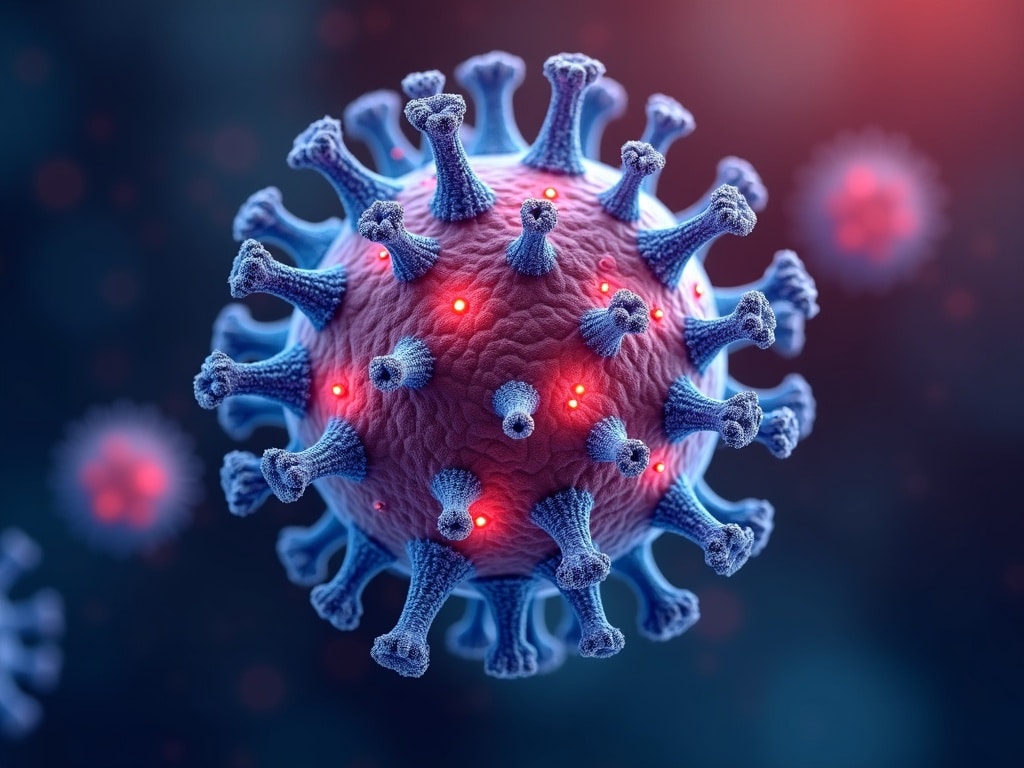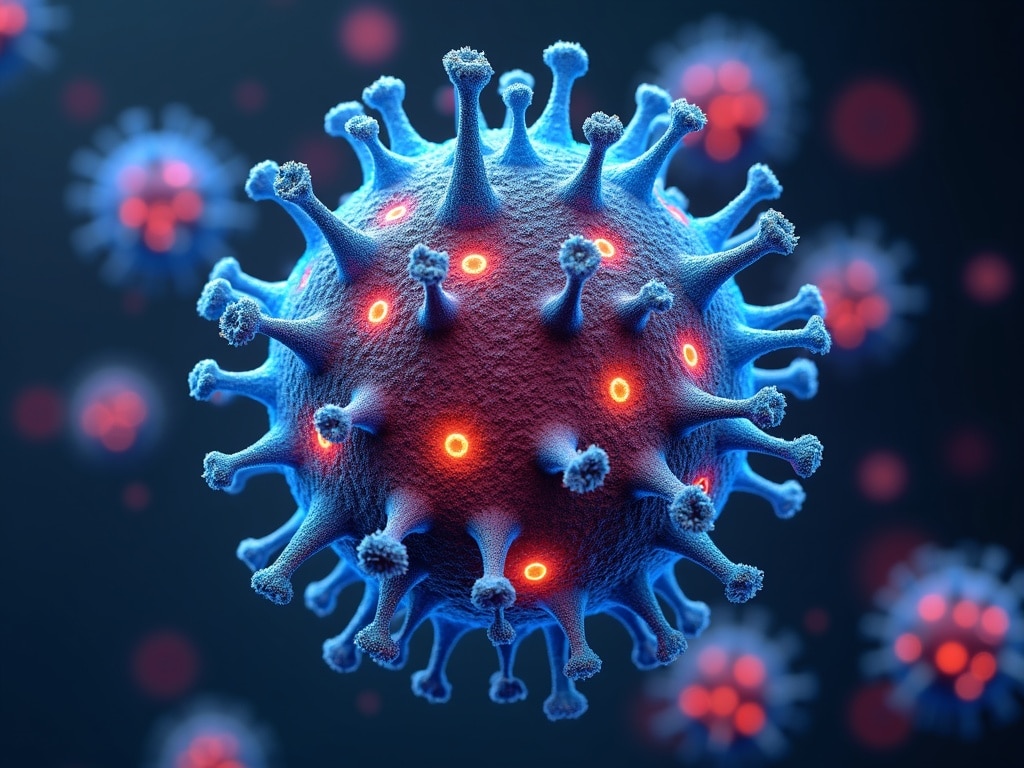What You Need to Know About Your Immune Cells
Imagine your body as a bustling kingdom, constantly under threat from invaders – bacteria, viruses, and even rogue cells from within. The valiant defenders of this kingdom? Your immune cells. These microscopic warriors are the unsung heroes, working tirelessly to keep you healthy. But how much do you really know about these vital protectors? Delving into the world of immune cells is like uncovering a secret world of complex communication, specialized roles, and incredible adaptability. Understanding their functions and how to support them is key to maintaining a robust and resilient immune system.
The Different Types of Immune Cells and Their Roles
The immune system isn't a single entity, but a complex network of cells, tissues, and organs working in harmony. At the heart of this network are the immune cells, each with a specific role to play in defending the body. Understanding the different types of immune cells and their functions is crucial to appreciating the complexity and effectiveness of the immune system.
The Innate Immune System: Your First Line of Defense
The innate immune system is your body's rapid-response team, providing immediate, non-specific defense against any threat. It's like the castle guard, always on duty and ready to raise the alarm. Key players in the innate immune system include:
- Neutrophils: These are the most abundant type of white blood cell and are the first responders to infection. They engulf and destroy pathogens through a process called phagocytosis. Think of them as the foot soldiers, quickly mobilizing to the site of infection.
- Macrophages: These versatile cells also perform phagocytosis, but they have a longer lifespan than neutrophils and play a crucial role in activating the adaptive immune system. They're like the cleanup crew, clearing debris and presenting antigens to other immune cells.
- Natural Killer (NK) Cells: These cells are specialized in identifying and destroying infected or cancerous cells. They recognize cells that are not displaying the correct self markers and eliminate them. They're like the special ops team, targeting specific threats.
- Dendritic Cells: These cells act as messengers between the innate and adaptive immune systems. They capture antigens and present them to T cells, initiating a targeted immune response. They're like the intelligence officers, gathering information and alerting the rest of the army.
The Adaptive Immune System: Targeted and Specific Defense
The adaptive immune system is a more sophisticated defense system that learns and remembers specific pathogens. It's like the specialized forces, trained to deal with particular threats. The key players in the adaptive immune system are:
- T Cells: These cells are crucial for cell-mediated immunity. There are several types of T cells, including:
- Helper T Cells (CD4+): These cells orchestrate the immune response by releasing cytokines, chemical messengers that activate other immune cells. They're like the commanders, directing the battle.
- Cytotoxic T Cells (CD8+): These cells directly kill infected or cancerous cells. They're like the assassins, specifically targeting and eliminating threats.
- Regulatory T Cells (Tregs): These cells suppress the immune response, preventing it from becoming overactive and causing damage to the body. They're like the peacekeepers, ensuring the immune system doesn't turn on itself.
- B Cells: These cells are responsible for antibody-mediated immunity. When activated, they differentiate into plasma cells, which produce antibodies that neutralize pathogens and mark them for destruction. They're like the weapons manufacturers, producing specialized ammunition.
How Immune Cells Communicate
Effective immune responses rely on constant communication between different types of immune cells. This communication occurs through a variety of mechanisms, including:
- Cytokines: These are small proteins that act as signaling molecules, allowing immune cells to communicate with each other and with other cells in the body. Different cytokines have different effects, such as activating immune cells, promoting inflammation, or suppressing the immune response.
- Cell-to-cell contact: Immune cells can also communicate through direct contact, using surface receptors to bind to other cells and transmit signals.
- Antigen presentation: Antigen-presenting cells, such as dendritic cells and macrophages, present antigens to T cells, activating them and initiating an adaptive immune response.
This intricate communication network ensures that the immune system can mount a coordinated and effective response to any threat.
Factors Affecting Immune Cell Function
The function of immune cells can be affected by a variety of factors, including:
- Age: As we age, the immune system becomes less effective, a process known as immunosenescence. This can lead to increased susceptibility to infections and a decreased ability to respond to vaccines.
- Nutrition: A balanced diet rich in vitamins, minerals, and antioxidants is essential for optimal immune function. Deficiencies in certain nutrients, such as vitamin D, vitamin C, and zinc, can impair immune cell function.
- Stress: Chronic stress can suppress the immune system, making you more vulnerable to illness. Stress hormones like cortisol can interfere with the function of immune cells.
- Sleep: Adequate sleep is crucial for immune function. During sleep, the body produces cytokines that help regulate the immune system.
- Exercise: Regular moderate exercise can boost immune function, while excessive exercise can suppress it.
- Underlying health conditions: Certain health conditions, such as autoimmune diseases and HIV, can significantly impair immune cell function.

How to Support Your Immune Cells
While some factors affecting immune cell function are unavoidable, there are many things you can do to support your immune cells and maintain a healthy immune system:
- Eat a healthy diet: Focus on consuming a variety of fruits, vegetables, whole grains, and lean protein. These foods provide the essential nutrients your immune cells need to function properly.
- Get enough sleep: Aim for 7-8 hours of sleep per night to allow your body to repair and regenerate.
- Manage stress: Practice stress-reducing techniques such as meditation, yoga, or spending time in nature.
- Exercise regularly: Engage in moderate-intensity exercise most days of the week.
- Maintain a healthy weight: Obesity can impair immune function.
- Avoid smoking and excessive alcohol consumption: These habits can weaken the immune system.
- Get vaccinated: Vaccines help your immune system recognize and fight off specific pathogens.
- Consider supplements: Certain supplements, such as vitamin D, vitamin C, and zinc, may help support immune function, especially if you have a deficiency. However, it's important to talk to your doctor before taking any supplements.
The Future of Immune Cell Research
The field of immunology is constantly evolving, with new discoveries being made all the time. Researchers are exploring new ways to harness the power of immune cells to treat diseases, including cancer, autoimmune diseases, and infectious diseases. Some promising areas of research include:
- Immunotherapy: This approach uses the body's own immune system to fight cancer. It involves stimulating or enhancing the immune response to target and destroy cancer cells.
- Vaccine development: Researchers are working to develop new and more effective vaccines against a wide range of diseases.
- Understanding the role of the microbiome: The trillions of microorganisms that live in our gut play a crucial role in shaping the immune system. Researchers are investigating how the microbiome influences immune cell function and how to manipulate the microbiome to improve immunity.
Conclusion
Your immune cells are the guardians of your health, constantly working to protect you from harm. By understanding the different types of immune cells, how they communicate, and what factors affect their function, you can take steps to support your immune system and stay healthy. From adopting a healthy lifestyle to staying informed about the latest advances in immunology, you can empower your immune cells to keep you thriving.

